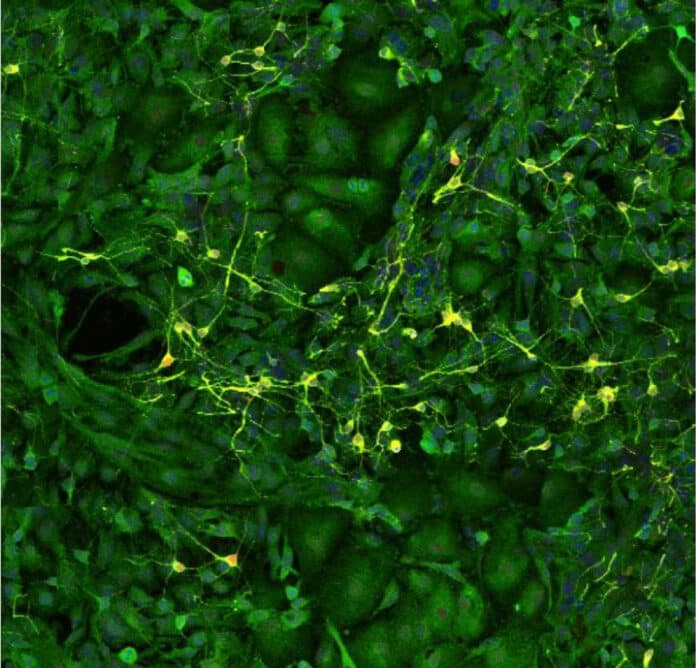Exercise has been shown to have numerous benefits for both physical and mental health, and one of these benefits is its ability to release chemical signals that boost brain health. These chemical signals, also known as neurotransmitters, are responsible for communication between neurons in the brain.
During exercise, the body produces several neurotransmitters, including dopamine, serotonin, and norepinephrine, which can positively impact brain function. Dopamine, for example, is known to improve motivation and concentration, while serotonin can help to regulate mood and reduce anxiety.
Researchers at the Beckman Institute for Advanced Science and Technology have found that physical activity can directly improve brain health by promoting neuronal development. The study published in Neuroscience shows that the chemical signals released by exercising muscles can travel to different body parts, including the brain, and benefit the hippocampus, a critical part of the brain responsible for learning and memory.
In addition to these neurotransmitters, exercise also stimulates the production of brain-derived neurotrophic factors (BDNF). This protein is critical for the growth and survival of neurons in the brain. BDNF has been shown to improve learning and memory, as well as protect against neurodegenerative diseases such as Alzheimer’s and Parkinson’s.
Another way that exercise can boost brain health is by increasing blood flow and oxygen to the brain. This can help improve cognitive function and reduce the risk of cognitive decline in older adults.
“The hippocampus is a crucial area for learning and memory, and therefore cognitive health,” said Ki Yun Lee, a Ph.D. student in mechanical science and engineering at the University of Illinois Urbana-Champaign and the study’s lead author. Understanding how exercise benefits the hippocampus could lead to exercise-based treatments for various conditions, including Alzheimer’s disease.
To understand the relationship between exercise and better brain health, researchers at the Beckman Institute for Advanced Science and Technology collected small muscle cell samples from mice. They grew them in cell culture dishes in the lab. When the muscle cells matured and began contracting, they released chemical signals into the cell culture.
These signals were then exposed to hippocampal neurons, resulting in more extensive and frequent electrical signals, indicating robust growth and development. Further research focused on the role of astrocytes in mediating this relationship between exercise and better brain health.
“Astrocytes are the first responders in the brain before the compounds from muscles reach the neurons,” Lee said. Perhaps, then, they played a role in helping neurons respond to these signals. Researchers at the Beckman Institute for Advanced Science and Technology discovered that astrocytes play a crucial role in regulating the effects of exercise on brain health. By removing astrocytes from the cell cultures, the neurons fired even more electrical signals, indicating that without astrocytes, the neurons may continue growing to an unmanageable level.
Understanding the chemical pathway between muscle contraction and the regulation of hippocampal neurons could lead to the development of more effective exercise regimens for cognitive disorders like Alzheimer’s disease. The research team included Justin Rhodes and Taher Saif, Beckman faculty members.
Exercise improves brain health by enhancing hippocampal function, possibly due to chemicals released by contracting muscles that enter circulation and enhance plasticity. However, the transduction of muscle signals by hippocampal cells needs to be clarified.
Researchers established an in vitro model using primary muscle and hippocampal cell cultures. They found that exposure to the media from contracting muscle cells (CM) caused faster hippocampal neuronal network maturation and increased proliferation of astrocytes and neurons.
The study also revealed that astrocytes play a critical role in regulating neuronal activity and taming it into an integrated network. These findings shed light on the pathway linking exercise to hippocampal function.
The release of chemical signals during exercise has numerous benefits for brain health, including improved mood, cognitive function, and protection against neurodegenerative diseases. Therefore, regular exercise should be considered an essential component of a healthy lifestyle for physical and mental well-being.
Journal Reference:
- Ki Yun Lee, Justin S. Rhodes, M. Taher A. Saif et al. Astrocyte-mediated Transduction of Muscle Fiber Contractions Synchronizes Hippocampal Neuronal Network Development. Neuroscience. DOI: 10.1016/j.neuroscience.2023.01.028
